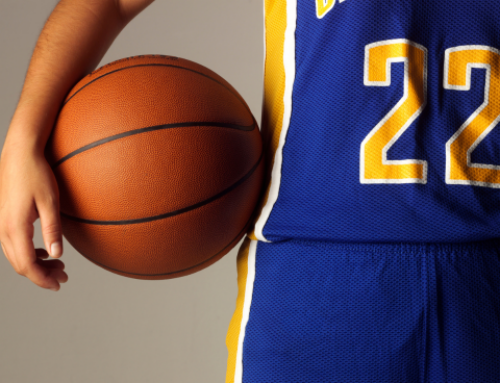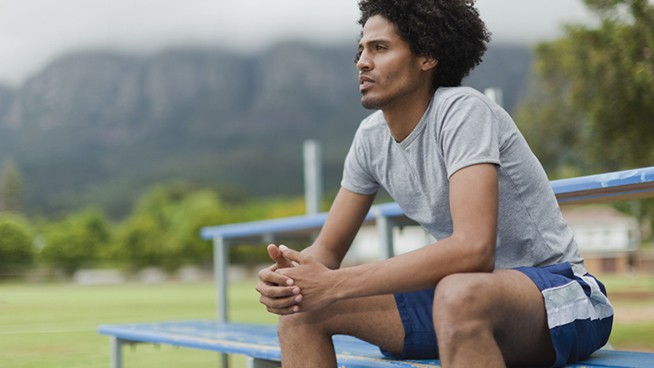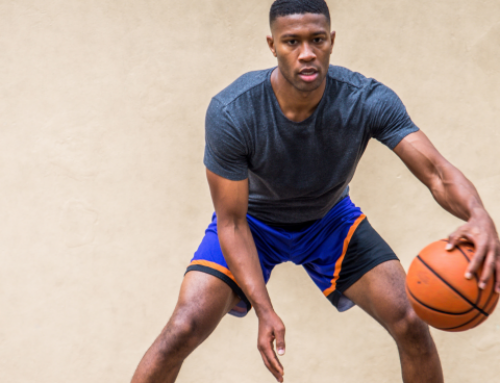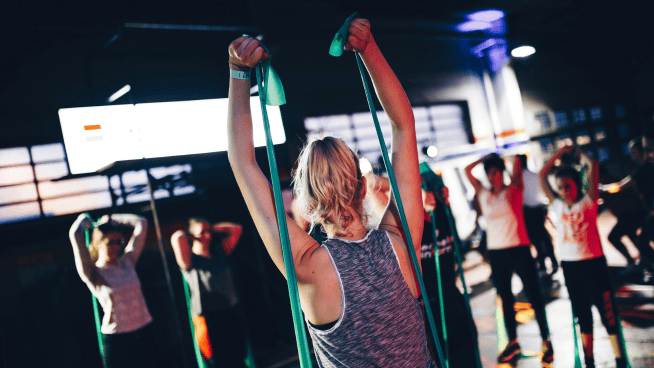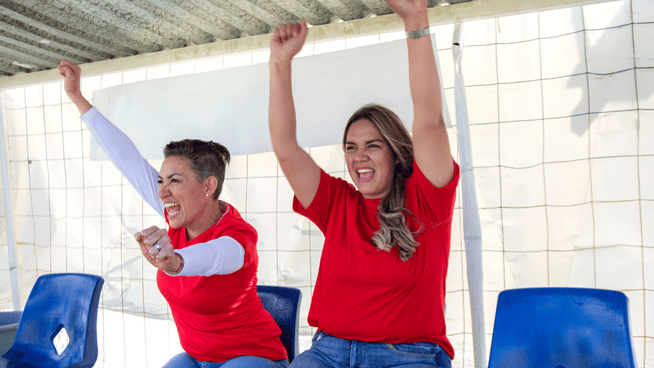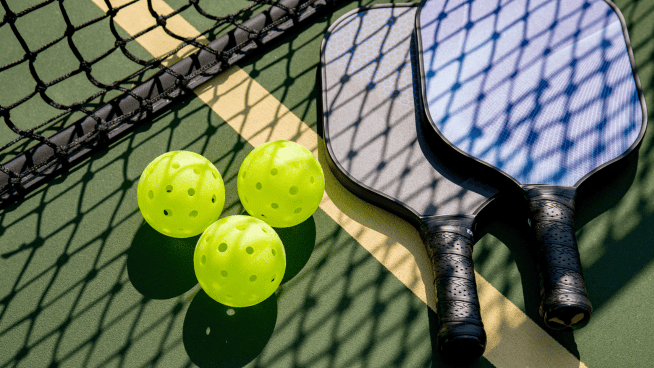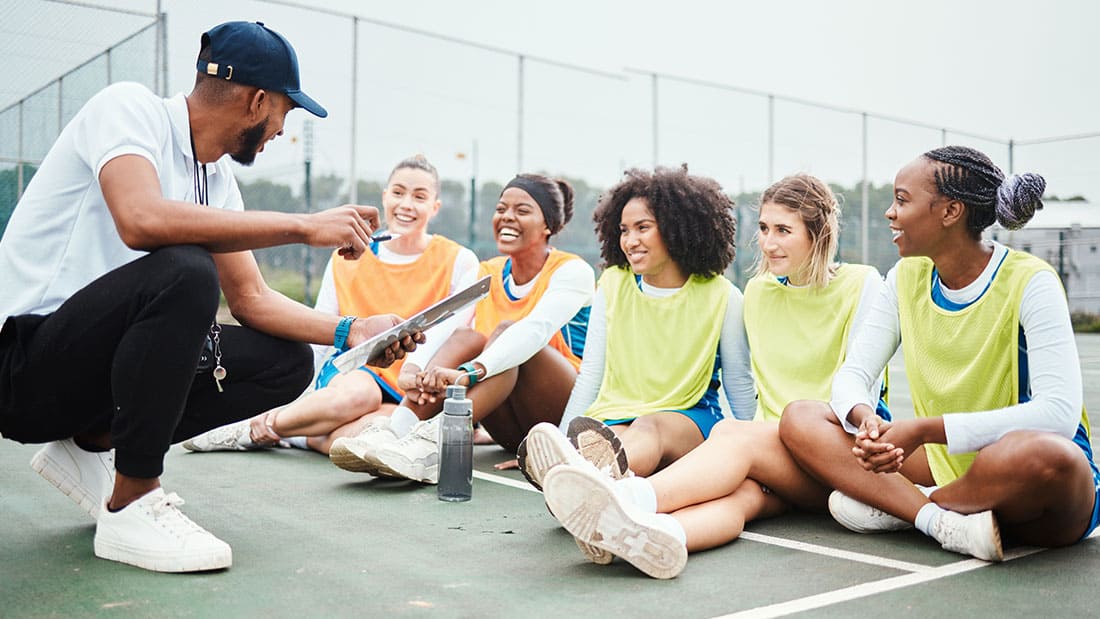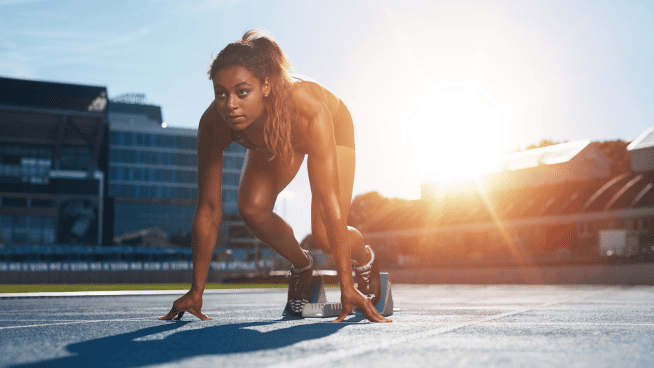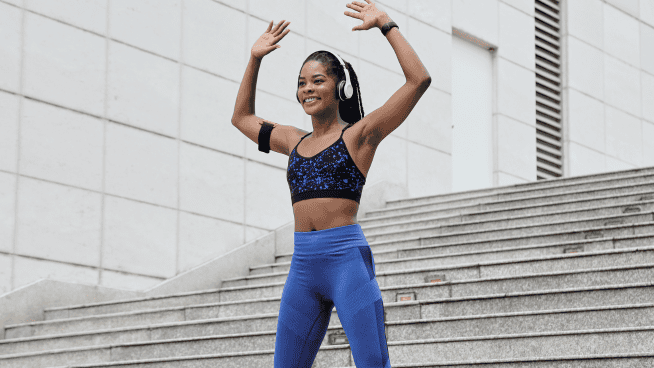Do Athletes Make Better Students?
Anyone who tells you that “student-athlete” is an oxymoron deserves a good swift kick in the pants.
Pursuing a sport in college or as a career requires immense discipline and dedication. For example, it’s completely understandable for a young baller who focuses most of his time and energy on basketball to view his identity almost strictly as a basketball player, and not much else. Ball is life, after all.
But if making it to the pros is the dream, it doesn’t have to be exclusive. Allowing some flexibility with your dream might prove beneficial. The Sport Industry Research Center in London set out to discover if experience playing sports actually has a positive impact on employability. They surveyed almost 6,000 individuals with varying degrees of “sportiness,” including non-athletes. Researchers found that those who played sports in college earned more than those who only went to the gym. Those who did not play a sport had the lowest level of income.
Although the survey results might be viewed with skepticism, strength of body often translates to strength of mind, and vice versa. Physical activity has undoubted mood-boosting benefits. But more important in this case, many skills and habits learned in athletics are easily transferable to the pursuit of academics—like concentration, work ethic, leadership ability, quick thinking, dealing with setbacks, perseverance and working with others.
Juggling academics and sports can be challenging; but since most study time is spent under pressure, logic suggests that a busy schedule means more work is likely to get done. When you have no choice but to focus, less free time equals less time for procrastination. Therefore, it makes sense that athletes would earn higher GPAs than non-athletes? Easier said than done, right?
Two studies from March of this year, published in the International Journal of the History of Sport, looked specifically at the relationship between athletic performance and academic development and decision making for collegiate student-athletes. Most of the athletes participating in the study competed in extremely time-demanding sports that do not pay well or at all, and as a result, had to consider alternate careers.
The research findings demonstrated that, in spite of grueling training schedules, athletes were high academic achievers. Regarding the balancing act, some interviewees gave equal importance to athletics and academics, some identified a clear priority between the two, and others said they continually shifted and negotiated their priorities.
Another group of studies done by the NCAA aimed at testing the claim that athletes perform better in-season than out-of-season. They included well over 15,000 students across Divisions I, II and III; the Division I study spanned four years.
For some, like Division III soccer and lacrosse athletes, GPAs were higher during the season. But most of the findings, particularly of the D-I athletes, showed that they scored lower in academic performance while in-season. In high-profile big name sports, where the athletes could legitimately be considered “university employees,” the stress of balancing school work with sports, and performing well in both, can be intense. In other words, the priority is settled ahead of time… at least while in-season.
The Journal of Issues in Intercollegiate Athletics published findings showing that poorer academic performance of student-athletes in high-profile sports (compared with non-athlete students) was confined to their playing seasons. But then again, a drop in in-season performance is not always the case.
When March Madness takes hold and the rest of the country slacks off to watch and discuss games, student-athletes still have boatloads of homework—on top of the insane pressure to perform well in the tournament. Whether you’re dabbling in sports alongside your studies, or just taking classes alongside your athletics, more balance is theoretically possible. But if perfect equilibrium between sports and school is unrealistic, there seems to be no reason to sacrifice one for the other.
RECOMMENDED FOR YOU
MOST POPULAR
Do Athletes Make Better Students?
Anyone who tells you that “student-athlete” is an oxymoron deserves a good swift kick in the pants.
Pursuing a sport in college or as a career requires immense discipline and dedication. For example, it’s completely understandable for a young baller who focuses most of his time and energy on basketball to view his identity almost strictly as a basketball player, and not much else. Ball is life, after all.
But if making it to the pros is the dream, it doesn’t have to be exclusive. Allowing some flexibility with your dream might prove beneficial. The Sport Industry Research Center in London set out to discover if experience playing sports actually has a positive impact on employability. They surveyed almost 6,000 individuals with varying degrees of “sportiness,” including non-athletes. Researchers found that those who played sports in college earned more than those who only went to the gym. Those who did not play a sport had the lowest level of income.
Although the survey results might be viewed with skepticism, strength of body often translates to strength of mind, and vice versa. Physical activity has undoubted mood-boosting benefits. But more important in this case, many skills and habits learned in athletics are easily transferable to the pursuit of academics—like concentration, work ethic, leadership ability, quick thinking, dealing with setbacks, perseverance and working with others.
Juggling academics and sports can be challenging; but since most study time is spent under pressure, logic suggests that a busy schedule means more work is likely to get done. When you have no choice but to focus, less free time equals less time for procrastination. Therefore, it makes sense that athletes would earn higher GPAs than non-athletes? Easier said than done, right?
Two studies from March of this year, published in the International Journal of the History of Sport, looked specifically at the relationship between athletic performance and academic development and decision making for collegiate student-athletes. Most of the athletes participating in the study competed in extremely time-demanding sports that do not pay well or at all, and as a result, had to consider alternate careers.
The research findings demonstrated that, in spite of grueling training schedules, athletes were high academic achievers. Regarding the balancing act, some interviewees gave equal importance to athletics and academics, some identified a clear priority between the two, and others said they continually shifted and negotiated their priorities.
Another group of studies done by the NCAA aimed at testing the claim that athletes perform better in-season than out-of-season. They included well over 15,000 students across Divisions I, II and III; the Division I study spanned four years.
For some, like Division III soccer and lacrosse athletes, GPAs were higher during the season. But most of the findings, particularly of the D-I athletes, showed that they scored lower in academic performance while in-season. In high-profile big name sports, where the athletes could legitimately be considered “university employees,” the stress of balancing school work with sports, and performing well in both, can be intense. In other words, the priority is settled ahead of time… at least while in-season.
The Journal of Issues in Intercollegiate Athletics published findings showing that poorer academic performance of student-athletes in high-profile sports (compared with non-athlete students) was confined to their playing seasons. But then again, a drop in in-season performance is not always the case.
When March Madness takes hold and the rest of the country slacks off to watch and discuss games, student-athletes still have boatloads of homework—on top of the insane pressure to perform well in the tournament. Whether you’re dabbling in sports alongside your studies, or just taking classes alongside your athletics, more balance is theoretically possible. But if perfect equilibrium between sports and school is unrealistic, there seems to be no reason to sacrifice one for the other.
RECOMMENDED FOR YOU
Create A Free Recruiting Profile Today!
CaptainU helps athletes & parents not only be proactive but also to manage and take control of their entire recruiting journey.


